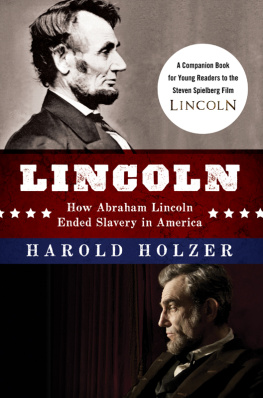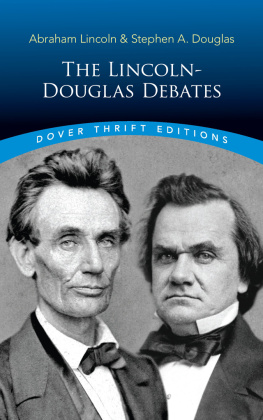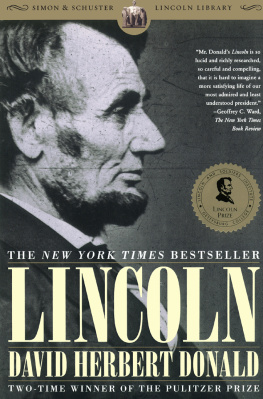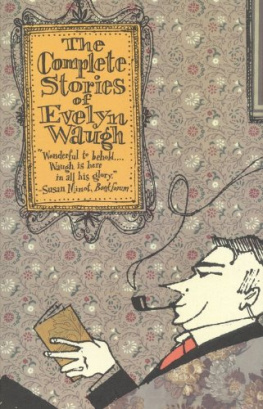Copyright 2007 by John C. Waugh
All rights reserved. No part of this publication may be reproduced or transmitted in any form or by any means, electronic or mechanical, including photocopy, recording, or any information storage and retrieval system, without permission in writing from the publisher.
For information about permission to reproduce selections from this book, write to or to Permissions, Houghton Mifflin Harcourt Publishing Company, 3 Park Avenue, 19th Floor, New York, New York 10016.
www.hmhco.com
The Library of Congress has cataloged the print edition as follows:
Waugh, John C.
One man great enough : Abraham Lincolns road to Civil War / John C. Waugh.1st ed.
p. cm.
Includes bibliographical references and index.
1. Lincoln, Abraham, 18091865Childhood and youth. 2. Lincoln, Abraham, 18091865Political career before 1861. 3. Lincoln, Abraham, 18091865Political and social views. 4. PresidentsUnited StatesBiography. 5. United StatesPolitics and government18371841. 6. United StatesPolitics and government18411845. 7. United StatesPolitics and government18451861. 8. United StatesHistory-Civil War, 18611865Causes. 9. IllinoisPolitics and governmentTo 1865. I. Title.
E457.3.W25 2007
973.7092dc22 2007009588
978-0-15-101071-4
e ISBN 978-0-547-35073-8
v4.1116
For my father,
who had a sense of humor
Lincoln would have appreciated.
PROLOGUE
The Uncoiling of the Serpent
The new two-story statehouse in Vandalia, Illinois, stood unfinished in early 1837. Workmen had slapped plaster on the walls just before the Tenth General Assembly convened in December. Its damp, displeasing essence still hung in the legislative chambers upstairs.
Abraham Lincoln, a young Whig legislator from Sangamon County, was beginning his second term. He was not as new to politics as the plaster was to the walls, but the plaster was more likely to stick than what he was about to do. In a bold move, he was about to drop a resolution into the record that ran emphatically against dominant public opinion in his stateon slavery, which raised hackles as no other issue did.
The issue was uncoiling across the country like a hissing serpent. Abolition societies proliferated in the North, blanketing The Souths mightiest guns, its most articulate and powerful ideologues, were answering in kind, showering shot and shell on abolitionism in the defense of their peculiar institution.
Southern legislatures were not only passing angry resolutions against abolitionists, they were demanding that Northern legislatures do the same. Virginia, Alabama, and Mississippi had sent memorials to Illinois, which Governor Joseph Duncan had transmitted to the General Assembly in December 1836.
In January, the Illinois legislature resoundingly passed a set of sympathizing resolutionsthat we highly disapprove of the formation of abolition societies, and of the doctrines promulgated by them; that the right of property in slaves is sacred to the slave-holding States by the Federal Constitution, and that they cant be deprived of that right without their consent.
Lincoln quietly voted against the resolutions, one of only six of the legislatures ninety-one members who did. In early March, three days before adjournment, he wanted to quietly add something more to the record.
The issue was important to many in Illinois, but it mattered to Lincoln in a different way. For the most part, the people of Illinois were emigrants from Southern states, as was Lincoln himselfborn in Kentucky and grown to manhood in southern Indiana. Most of these former Southerners were for slavery and against anything that wasnt.
Lincoln, though a Southerner, didnt see it exactly that way. Not that this gangly young lawmaker bought into the idea of Negro equality. He didnt. With most white opinion, Northern He rejected outright the idea of racial intermarriage.
But in Lincolns mind slavery was a different matter. It was immoral, crowding the outer limit of inhumanity. He was to say, I am naturally anti-slavery. If slavery is not wrong, nothing is wrong. I can not remember when I did not so think, and feel.
In March 1837, he wanted to introduce a resolution that would mirror this feeling. But he was playing with dynamite. The wording had to be hedged; it would be political suicide in Illinois to be lumped with abolitionists. And he would have to do it virtually alone. The only other House member willing to go with him was Dan Stone, a fellow Whig legislator who had brought his anti-slavery psyche with him from his native Vermont.
On March 3 they introduced their resolution, protesting the longer ones passed in January. It was entered in the record without comment or debate. It said: Resolutions upon the subject of domestic slavery having passed both branches of the General Assembly at its present session, the undersigned hereby protest against the passage of the same. They believe that the institution of slavery is founded on both injustice and bad policy; but that the promulgation of abolition doctrines tends rather to increase than to abate its evils.
That was the nub of it. Abolitionist agitation was bad enough, but the greater evil was slavery itself. The original resolutions hadnt said that. There was a moral issue here. And that was the distinction Lincoln and Stone wanted to make. They made it quietly, as they went out the door.
Softly introduced, those lines made virtually no noise in the state. But it was the first public stand that this young politician ever took on the institution of slavery. It was to be the first of many on a road that would lead himand his countryto the very gates of disunion and civil war.
PART ONE
Who He Was and Where He Came From
The Dark and Bloody Ground
A BRAHAM L INCOLNS ANCESTRAL LINE , like so many others in the New World, followed a southwesterly driftfrom England to Massachusetts, into New Jersey and Pennsylvania to Virginia, then through the Cumberland Gap into Kentucky. In the late 1700s, Lincolns Grandfather Abraham followed the flood of migration to the Wilderness Road through that Gap, the great cleft in the mountains,
The Wilderness Road itself, that track through Kentucky beyond the Gap, was just as terrorizinga lonely and houseless path into a wild and cheerless land.
But these pioneers were pilgrims, drawn irresistibly over this gash through the wilderness,
Lincolns grandfather pushed on the crest of the wave of Western settlement, deep into this land of milk and honey to settle on over 5,000 acres of ground near Bear Grass Fort, the site of present day Louisville. There he built a log cabin, and soon the dark and bloody ground claimed him. In an unprotected moment, as he was sowing a crop of corn with his three sons, Indians killed him.
The youngest of those surviving sons was Thomas, only eight years old when his father died. But he lived to grow up and become a carpenter, and to meet a woman named Nancy Hanks. A frontier child like him, she had also mourned the early death of a parent and was a woman of sorrows and acquainted with grief. She had come to Kentucky and to her destiny, like Tom, through the Cumberland Gap over the Wilderness Road.
Tom was short, stout, and strong, raven-haired and black-eyed, a man of uncommon Endurance. He was illiterate, but he had a knack for telling a story, and he was a good carpenter, said to have the best set of tools in Washington County. He was thought to be good, clean, social, truthful and honest... a plain unpretending plodding man, who never thought that gold was God and didnt drink an cuss none.
Nancy was said to be tall, slender, and delicate of frameSpare made with dark hair and hazel eyes. She struck people as spiritually inclined, amiable, kind, charitable, affectionate, even-tempered, tender, and intelligent, but sad by nature.
Next page








